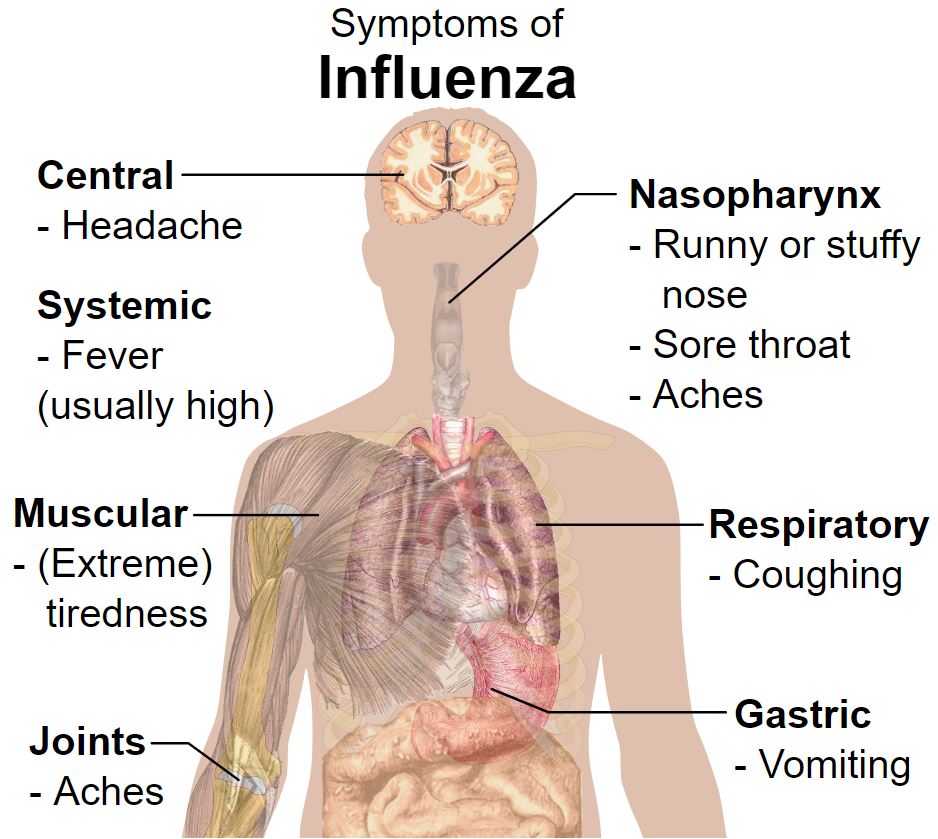By Dr. Rachel Gwertzman - CHEMED Pediatrician
It's that time of year. Time to swap out the shorts, t-shirts, and baseball caps for their winter counterparts-pants, sweaters, ski hats, coats. Hot beverages replace cold, as we turn the thermostat up. We stock our children's backpacks with a cozy sweatshirt and a healthy lunch. We give them a hug and a kiss and wish them another great day. But alas-what could we do to keep them from catching the ever-dreaded flu?
Flu (shortened for influenza) is a respiratory virus. It is spread easily through the air by coughing or sneezing. It lives on surfaces, such as door knobs and toys-and so it may also be contracted by coming in contact with an "infected" surface, before touching your eyes, nose or mouth. Symptoms may not present during the first several days of contracting the flu, increasing the potential for unknowing exposure. Once flu symptoms do arise, they may last for as long as two weeks, with children enduring fevers for up to ten days, coupled with chills, headache, body aches, fatigue, sore throat, cough, and runny nose. In certain circumstances, complications may arise leading to ear infections, sinus infections, and pneumonia. In a worst case scenario, the flu could be fatal.
It feels like preventing such a debilitating illness is simply beyond our control. As both a mother and pediatrician, I have witnessed how rapidly and rampantly the flu could spread and the devastating impact that it could have on kids and their families. However, there are several preventative measures that parents can take to decrease the likelihood of their children contracting the flu.
Generally speaking, preventing illness means being cautious. It means washing/sanitizing your child's hands often. It means keeping your children away from other sick children. It means encouraging your children to cough and sneeze into a tissue rather than their hands. It means discouraging any sharing of cups, pacifiers, utensils, towels, and toothbrushes. It means cleaning and disinfecting your home as often as possible. But as most of us know, these seemingly simple tasks can be quite difficult when dealing with the active toddler, who puts everything in their mouth and despises washing their hands. Or the school-aged adolescent, for whom you must rely on others (i.e. teachers) to ensure that they are taking all preventative measures.
The number one thing that parents can do-and should so-is have their child vaccinated. According to the Center for Disease Control ("CDC"), the 2017-2018 flu season was one of the most severe seasons on record, resulting in 179 childhood deaths and thousands of hospitalizations. The CDC estimates that about 80% of those children who died had not received a flu vaccination-evidence that the flu vaccine can help. The flu can be a very debilitating illness-but we are fortunate to have a vaccine that can help in preventing this disease from infecting your children. The American Academy of Pediatrics recommends the flu shot as first choice for children. While the nasal spray vaccine is available, it is not proven to be as effective as the injection, rendering it an inferior choice. While it is impossible to predict how effective the flu shot will be this year, you can be certain that having your child receive a flu shot will substantially reduce the risk of him or her being stricken by the flu.
Is there a parent out there who would not take this simple step to reduce their child's risk of contracting the flu-even if ever-so-slightly? I would think not. So the summer has ended. And winter is coming upon us. As the temperature drops, we will undoubtedly remember to bundle our children in their hats, gloves, coats, and scarves. And I know we will do our best to teach them proper hygiene. But please don't forget to get them their flu shot. Because we want this winter-and every winter - to bring fun-filled memories that are not derailed because of the flu.
Dr. Rachel Gwertzman received her doctorate from Nova Southeastern University's College of Osteopathic Medicine. Dr. Gwertzman's repertoire of experience includes work at St. Barnabas Medical Center and Goryeb Children's Hospital, as well as a medical mission to Haiti in 2011. She has developed several projects and presentations based on the extensive research she conducted about children's medical conditions.



